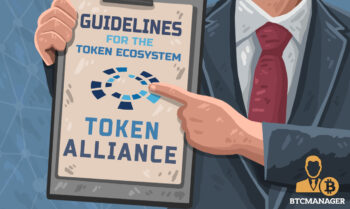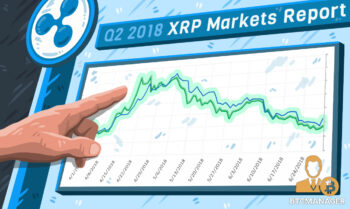2018-10-23 00:41 |
The Securities and Markets Stakeholder Group (SMSG) has released a new report suggesting that the European Securities and Markets Authority (ESMA) recommend to the European Commission that it regulate the cryptocurrency space with existing legislation rather than instilling new rules and laws.
The report specifies that most crypto assets are covered by the Unfair Commercial Practices Directive, which regulates unfair business practices in the European Union and requires corresponding laws to be passed that incorporate it into each member state’s legal system. However, cryptocurrencies are covered only in the sense that an entity issuing a crypto asset is labeled as a business, while the person purchasing it is a consumer.
The report asks several questions about different classes (payment tokens, utility tokens and asset tokens) of digital monies to determine whether they can or should fall under present statutes. For example, does the asset in question give the owner an entitlement against the issuer? Is it transferable? Is it scarce, and how is the scarcity controlled?
In terms of payment tokens like bitcoin, the report mentions that they are not presently covered by the Markets in Financial Instruments Directive (MiFID II), which is the EU legislation that regulates firms providing services to clients linked to financial instruments like stock shares and bonds. These tokens are also not covered under the Prospectus Regulation, which governs businesses’ shareholding structures, or the Market Abuse Regulation. The report suggests that these assets bear many of the same risks as other investment objects, and thus the authors urge the EU to place these cryptocurrencies under MiFID II control.
The second class of financial assets — utility tokens — are a completely different ballgame. These currencies are not classified as investments, as they represent a doorway for investors to access a company’s products and services. Many times, utility tokens are issued through initial coin offerings (ICOs). To raise capital, a new company or startup will sell a utility token to investors, who in turn gain access to a whole new coin.
Utility tokens aren’t covered under EU financial regulations as they are not transferable and are only usable in a relationship between the user and the issuer. Thus, the report says these currencies should not be covered by MiFID II unless they are considered transferable. An example would be Filecoin, which builds and runs distributed data applications and helps build smart contracts. Thus, Filecoin has the potential to become an investment object in the future, and in this case, it would carry many of the same risks as traditional stocks.
Lastly, the report examines asset tokens, which represent physical goods and can be used to finance new business projects. They can also be used to represent the titles and transfers of goods, which are then recorded into the blockchain and enlist stronger security measures for both the receiving and offering parties.
To better understand how these tokens should be regulated, the report examines which assets are financial instruments or transferable securities. If a token offers a user financial entitlement of some kind, it bears the same features as both bonds and shares. It is thus transferable and — per the report’s suggestion — should fall under MiFID II and the Prospectus Regulation. Examples include EOS and any other ERC20-based tokens, as they can be purchased and traded via digital exchanges and are transferable between rewards programs, compatible wallets and participating merchants.
However, if the asset gives right to an entitlement but is not transferable or doesn’t give the holder any kind of decision power, it shares features with prepaid assets and therefore does not warrant financial regulation now or in the future. Examples include badges or statements about public keys.
It should be made clear that ESMA does not have the power to implement new laws and regulations regarding financial instruments like cryptocurrencies, nor can it change existing laws. Thus, the report is meant to advise ESMA on how to discuss such changes with the European Commission.
To view the full report, click here.
This article originally appeared on Bitcoin Magazine.
origin »Time New Bank (TNB) íà Currencies.ru
|
|



























